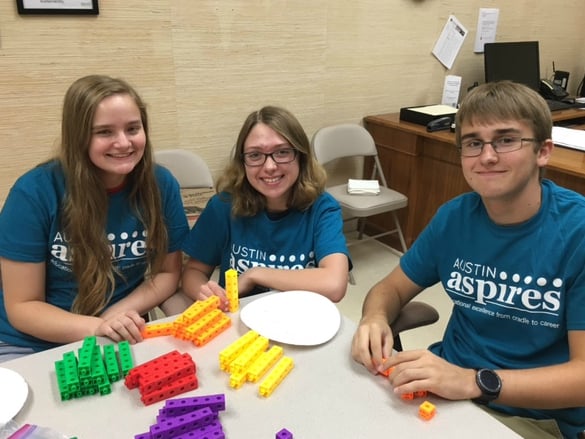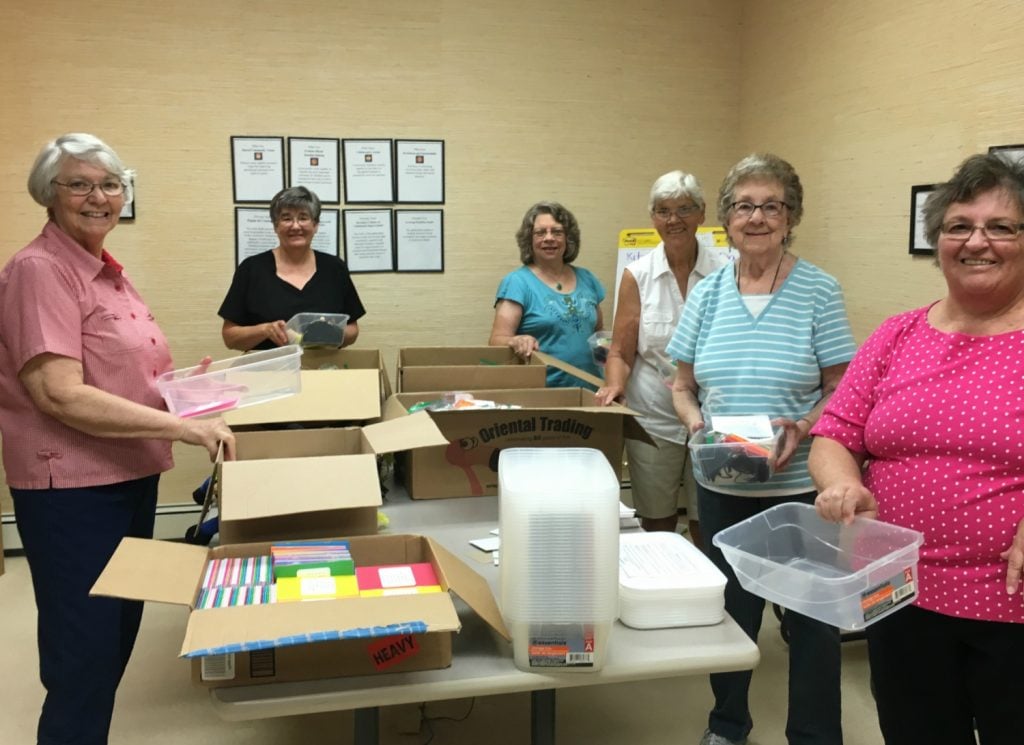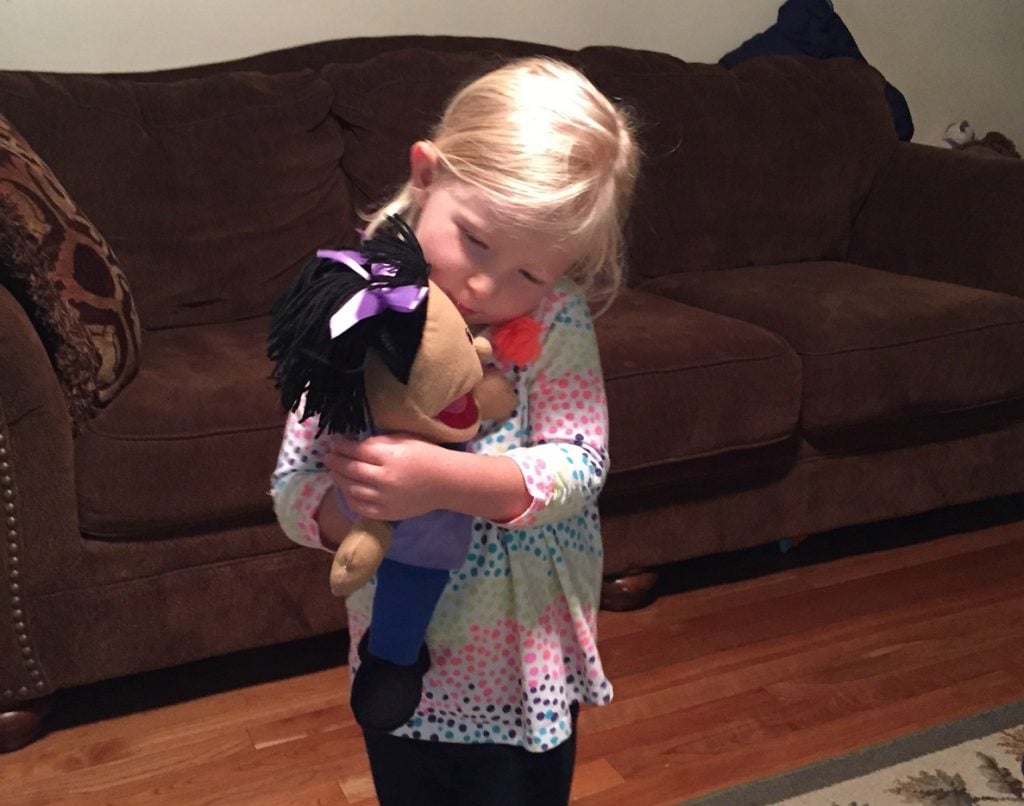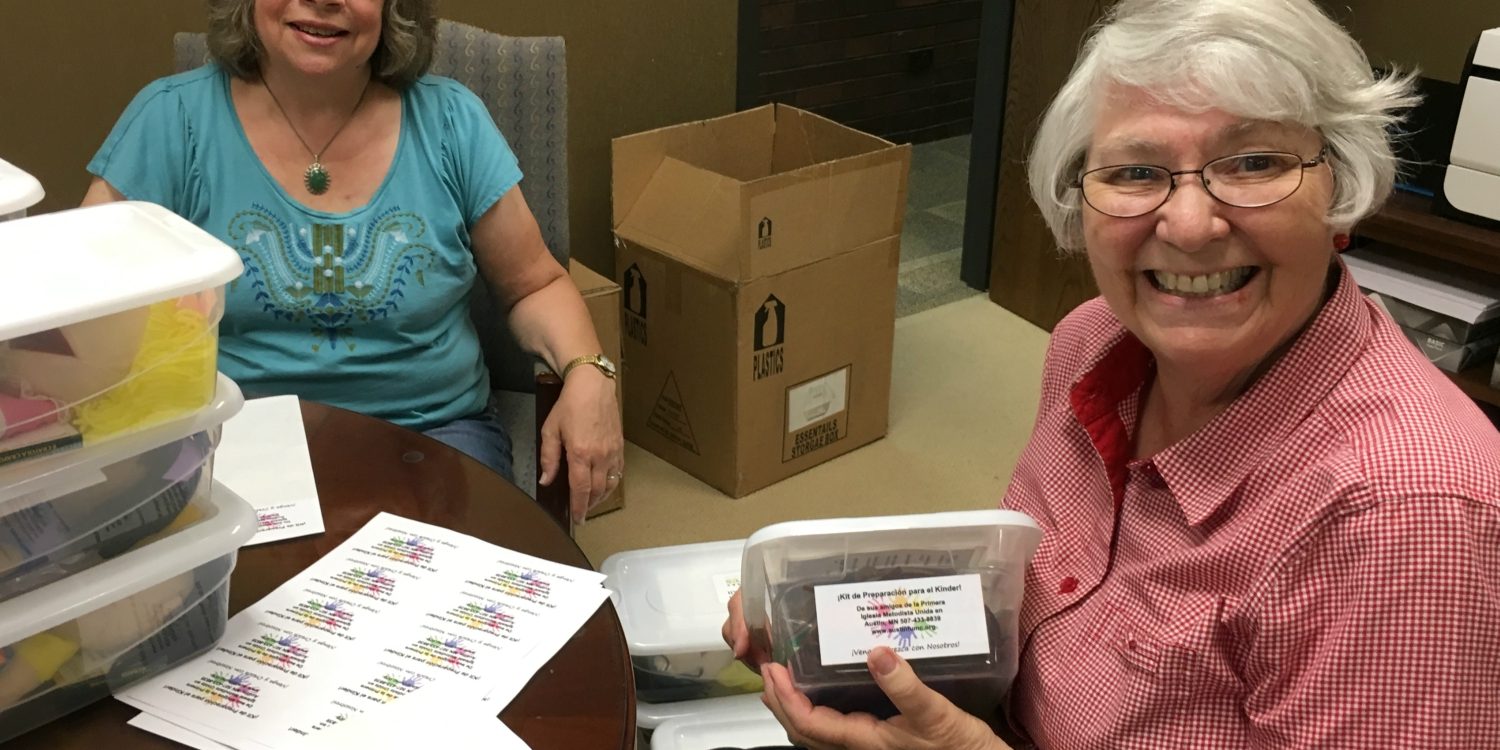For the community of Austin, Minnesota, collaboration is everything. Sustainable change means putting aside competition to work together. When the First United Methodist Church in Austin approached Austin Public Schools (APS) with a donation to support young children, the school district didn’t simply keep the opportunity in-house. Instead, APS gathered community partners to hear their ideas for the funding.
The group chose an idea from Austin Aspires, a Cradle to Career Network member: creating kindergarten readiness kits. In the first year, more than 350 families throughout Austin received the kits at mandatory early childhood screenings. As the second year of the program begins, plans have been made to enhance the effectiveness of the kits through increased parent education. To reach this goal, Austin Aspires is keeping three key insights in mind.
 Form diverse partnerships
Form diverse partnerships
As a community, Austin attributes much of its success to collaboration. Amy Baskin, the community education and communications director at APS, advises keeping an open mind about possibilities for cross-sector solutions.
“Are there partners that you can work with, who would those partners be and what do you need to do to get those partners?” Baskin suggests organizations ask themselves.
For the kindergarten readiness project, conversations with partners led to increased resources. Some groups involved, like United Way, contributed funding and printing for the kit materials. Shared insights proved invaluable as well, leading to important decisions like making the kits available in English and Spanish to better serve Austin’s diverse community.
Focus programs on relationships
The kindergarten readiness kits feature materials that harness relationship-building strategies. The kits include books, puppets, magnetic letters and numbers, crayons and notebooks, counting cubes and booklets with activity ideas for parents and children. The kits also feature booklets about kindergarten readiness goals and how parents can connect with their children to reach those objectives, created through contributions from local preschools.
“We needed to emphasize the importance of talking with your child and sitting with your child,” said Jennifer Lawhead, executive director of Austin Aspires. “Reading with your child is more effective and powerful than using worksheets.”
Relationship materials in the kit were designed to develop social-emotional learning and foster the ability to solve problems, both crucial to children’s early education.
Listen to community voices
 Austin Aspires used feedback from families to evaluate the first year of the program, including surveys sent to parents. While 100 percent of the respondents indicated they were using the resources, many shared that they would like more learning options included. With this feedback in mind, Austin Aspires turned its focus to increasing the quality and usability of items included in the kit.
Austin Aspires used feedback from families to evaluate the first year of the program, including surveys sent to parents. While 100 percent of the respondents indicated they were using the resources, many shared that they would like more learning options included. With this feedback in mind, Austin Aspires turned its focus to increasing the quality and usability of items included in the kit.
To meet this need, Austin Aspires has partnered with schools, students and community organizations. A local fifth-grade class completed a yearlong service project around the kits, including evaluating data, shopping for well-priced items and researching ideas for new materials.
Local preschools are providing data around kindergarten readiness objectives so that Austin Aspires can identify needs for improvement in communication, materials and parent education. The partnership filmed preschoolers using their kits and made these videos available online, showing parents concrete examples of effective use of the materials.
The partnership also created a video to be played in the Health and Human Services waiting room, highlighting relationship-building strategies. While families wait for services, parents can learn how to support their children’s kindergarten readiness skills.
Moving forward
 The success of the kindergarten readiness kits in Austin show the power of sharing opportunities, ideas and resources across the community. Through further collaboration with its partner organizations, Austin Aspires plans to improve the effectiveness of kit materials and increase parent education to make even more of an impact in the program’s second year. With collaborative work and open dialogue, the Austin community continues to improve educational outcomes for every child, from cradle to career.
The success of the kindergarten readiness kits in Austin show the power of sharing opportunities, ideas and resources across the community. Through further collaboration with its partner organizations, Austin Aspires plans to improve the effectiveness of kit materials and increase parent education to make even more of an impact in the program’s second year. With collaborative work and open dialogue, the Austin community continues to improve educational outcomes for every child, from cradle to career.






